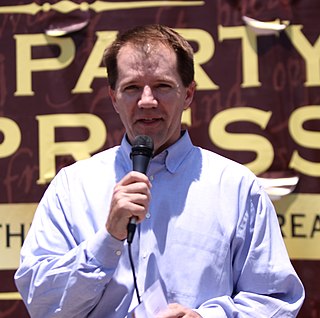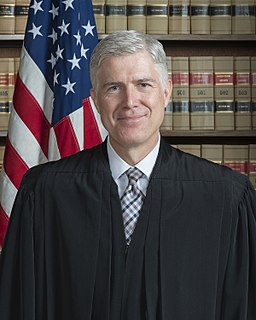A Quote by Robert Bork
Conservatives . . . may decide to join the game and seek activist judges with conservative views. Should that come to pass, those who have tempted the courts to political judging will have gained nothing for themselves but will have destroyed a great and essential institution. . . . There are only two sides. Either the Constitution and statutes are law, which means their principles are known and control judges, or they are malleable texts that judges may rewrite to see that particular groups or political causes win.
Quote Topics
Activist
Causes
Come
Conservative
Conservatives
Constitution
Control
Courts
Decide
Destroyed
Either
Essential
Gained
Game
Great
Groups
Institution
Join
Judges
Judging
Known
Law
Malleable
May
Means
Nothing
Only
Particular
Pass
Political
Principles
Rewrite
See
Seek
Should
Sides
Statutes
Tempted
Texts
Themselves
Those
Two
Two Sides
Views
Which
Will
Win
Related Quotes
The Supreme Court's most conservative Justices have presented themselves as great respecters of precedent and opponents of 'judicial activism' - of judges using the Constitution to strike down laws passed by the elected branches of government. If they are true to those principles, they should uphold rent control.
Judges decide upon copyright law. They decide upon trademark law. They decide upon scientific issues. They decide upon very complex technical issues on a daily basis. So you must have confidence in the Supreme Court, that they will apply their mind and they will come out with a decision consistent with the Constitution.
No doubt, there are those who believe that judges - and particularly dissenting judges - write to hear themselves say, as it were, 'I, I, I.' And no doubt, there are also those who believe that judges are, like Joan Didion, primarily engaged in the writing of fiction. I cannot agree with either of those propositions.
Some liberal interest groups have come out in full force and have attempted to paint Judge [Samuel] Alito to be an extremist and to be an activist. They've criticized a nominee who has, from what I see described by these lawyers and fellow judges, a reputation of being a restrained jurist committed to the rule of law and the Constitution.
If, then, the courts of justice are to be considered as the bulwarks of a limited Constitution against legislative encroachments, this consideration will afford a strong argument for the permanent tenure of judicial offices, since nothing will contribute so much as this to that independent spirit in the judges which must be essential to the faithful performance of so arduous a duty.
How we decide the vexed issue of the method of selection of judges of the Supreme Court and the high courts would determine the future of our democracy and the rule of law in the country. We are faced with the twin problem of selecting the best judges and also ensuring that the judiciary would be insulated from executive interference.
Our constitution should be inspired by the philosophy of the Koran with principles that are set in stone and not open to the whims of individual judges, as is the case now. In particular, the constitution should protect every citizen's basic human rights regardless of their sex, status or sect. Everyone should be equal before the law.



































